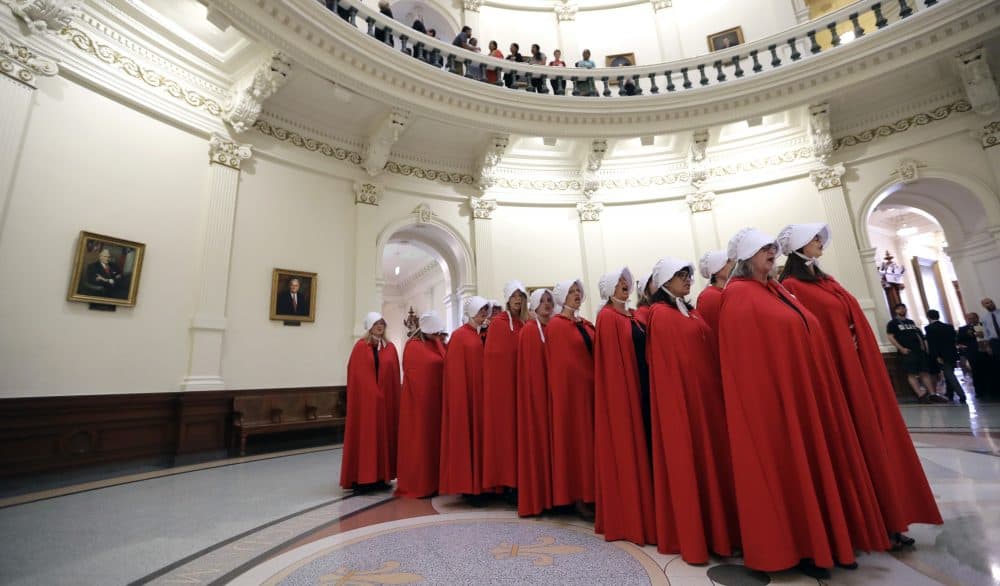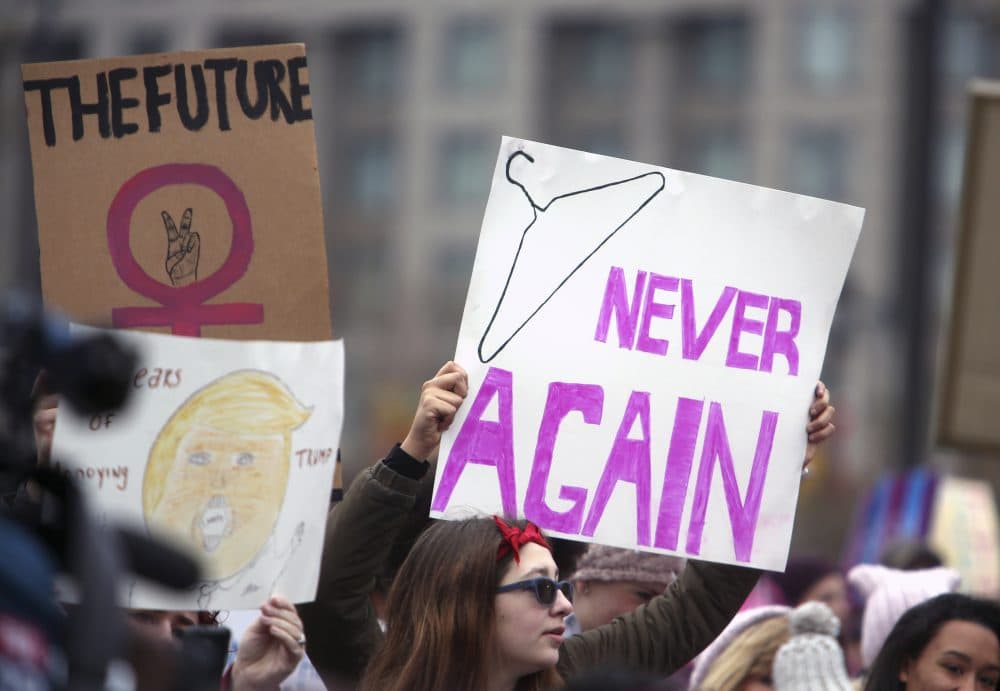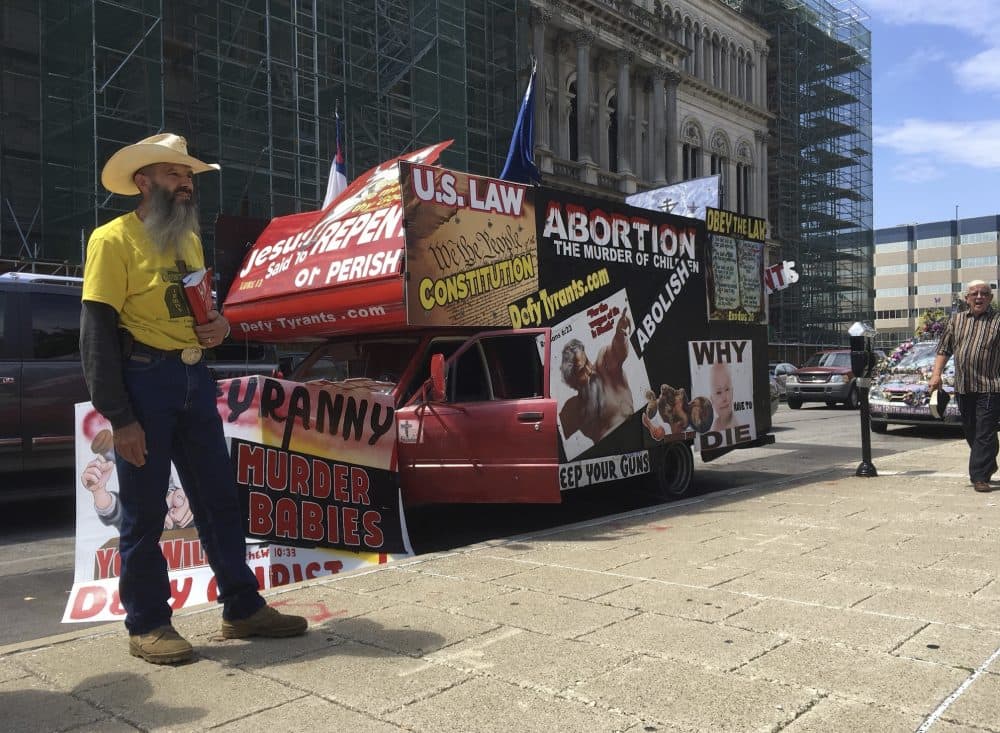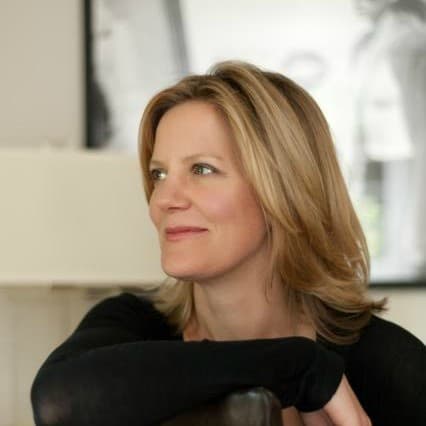Advertisement
commentary
Why Are American Women Only Half-Liberated?

As a Canadian-born woman, I've long been bewildered by the debate south of the border over a woman’s right to choose. For me, the conservatism of U.S. health care (and the defunding of Planned Parenthood) illustrates a continued stifling of feminism eradicated long ago in other developed nations. Until America solves its abortion and women’s health issues, even independent American women remain stymied by a divisive instrument in American politics: control over their own bodies. And its political fanning of flames suggests a much larger and pervasive perversion in a country where women have long been told they are free.
Recently, Margaret Sullivan, the media columnist for The Washington Post and former public editor for The New York Times, encouraged journalists to seek the truth while also admitting bias. At the time, I was preparing to interview Jennifer Childs-Roshak, president and CEO of the Planned Parenthood League of Massachusetts, and I had been thinking about the lens I would bring to the interview.
I grew up in Canada and went to college and graduate journalism school north of the 49th parallel. My views on women's rights and women's health were cemented before I left Canada at the age of 25, when I was first exploring sexuality and relationships, along with my ambition for a career and financial independence that would be as daring and full as those of my male counterparts. I've lived for the past 20 years in America, on both coasts, and I was drawn to this interview with Planned Parenthood by my incredulity over this unrelenting political debate over women’s health and its use as a political inferno. The same incredulity was captured in an image from the Women’s March where an older woman carries a sign that reads, “I can’t believe I am still protesting this s---.”

Add to this, the recent cultural obsession with the television series based on Canadian author Margaret Atwood’s 1985 novel, "The Handmaid’s Tale," which won best drama at the Emmys to huge reviews. In the age of Trump, I’m not the only one in awe of this chastity belt. It begs the question: America, why are Planned Parenthood and the right for a woman to choose what to do with her body such hot buttons? It is doubly confusing since around the world, American women have long been the muse for Wonder Woman. And yet, with all this empowerment, she’s still not liberated.
And so we stand alone from the sisterhood in all other developed nations and allies such as the UK, Canada, Sweden, France, Spain, Germany and Scotland — and even Russia — who fund abortions with taxpayer dollars and see a woman's right to choose as a private matter between her and her doctor. In the U.S., this is not the case. Here, we have the Hyde Amendment, preventing even one federal tax dollar pay for abortions — a law that reminds us of the limits of our freedom.
I learned that Planned Parenthood spends 97 percent of its national budget on women’s health and education. Only three percent of its budget goes to abortions, only in states where it is allowed, and uses state, not federal, funds. Women who don't live in those states have to travel for access. How is it that we are still at this crossroads? What do those who vehemently oppose Planned Parenthood, or use its existence as a baiting tool with their base, fear? My 15-year-old daughter recently reminded me of a letter Abigail Adams wrote to her husband, John Adams, in 1776:
“ ... I desire you would Remember the Ladies, and be more generous and favourable to them than your ancestors. Do not put such unlimited power into the hands of the Husbands. Remember all Men would be tyrants if they could. If perticular care and attention is not paid to the Laidies we are determined to foment a Rebelion, and will not hold ourselves bound by any Laws in which we have no voice, or Representation.”

Almost 250 years later, of course, there are tens of millions of American women and men who are very comfortable with a woman’s right to choose — one might say a popular vote’s worth. But inside our politics and health care bills, that support seems more tenuous. We watch American women conquer traditionally-held masculine roles from Hollywood to Wall Street as founders and CEOs … but then there's this pullback, constrained by our political construct. Without ultimate control of their sexuality, there is an archaic place in the domestic breeding of the traditional American family that is unsettling and dystopian.
There is a distinct freedom in sexual liberation and politics that women have in Canada, in Europe and in Scandinavian countries that equates to real equality. If you’re religiously opposed to abortion, I appreciate, can relate and understand; that’s the freedom of choice. It’s a woman’s choice between her and her faith. But why does government get a say?
At the end of our interview, Childs-Roshak made an important point: "If people are against abortion, then you should want to have birth control or you should want to have public education." The problem with abortion opponents in America is that they want none of that. I think the time has come, in the age of Trump, for America to finally acknowledge that anything less than full liberation for women around their bodies and health is holding its women back.
Women’s health is no longer up for political debate and gain.
